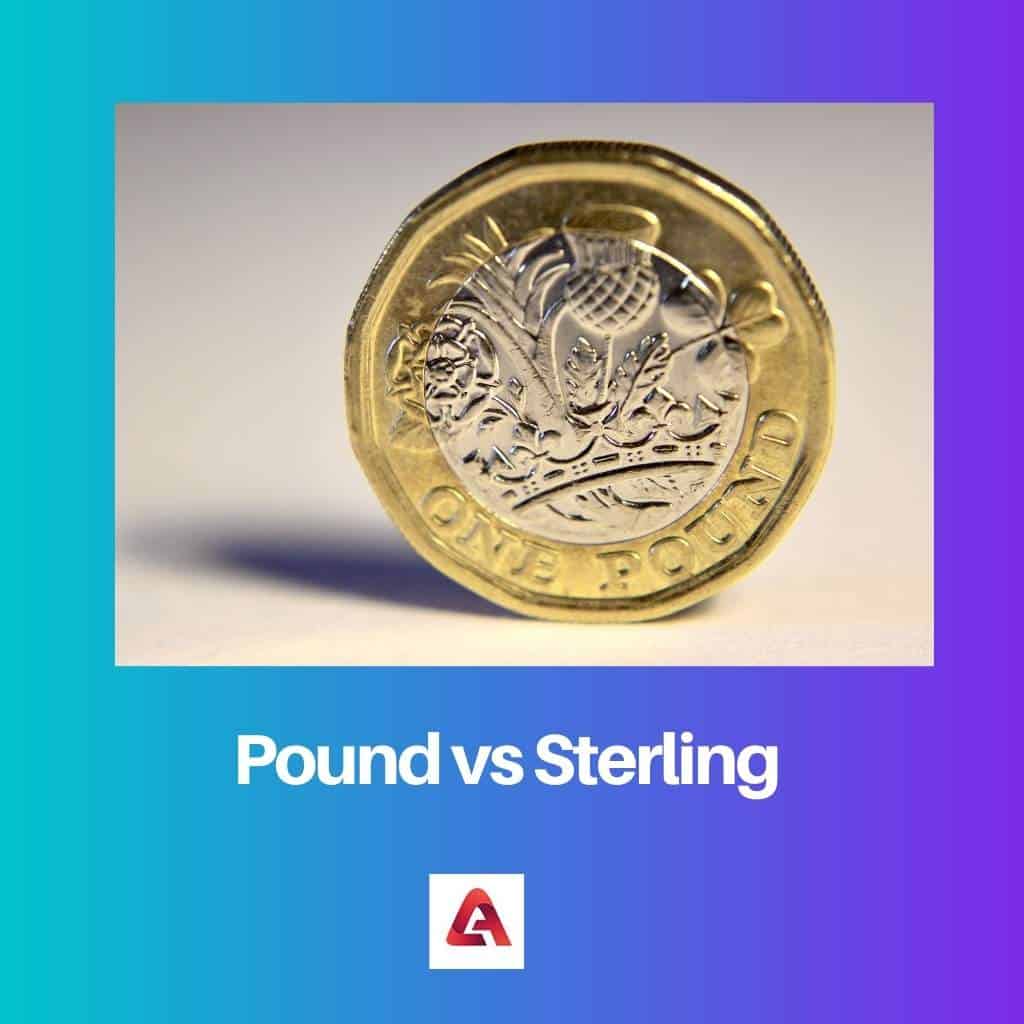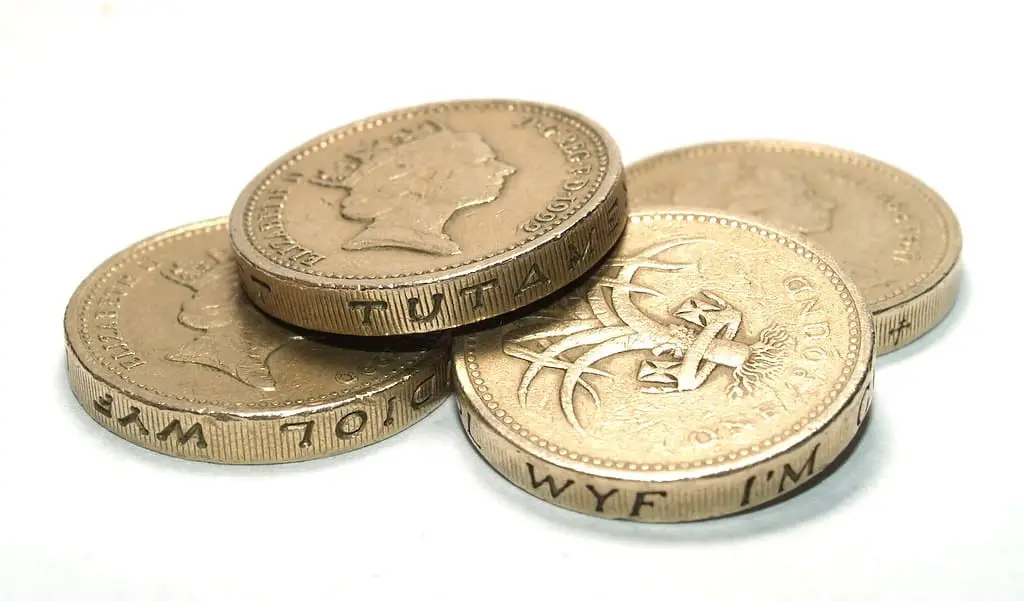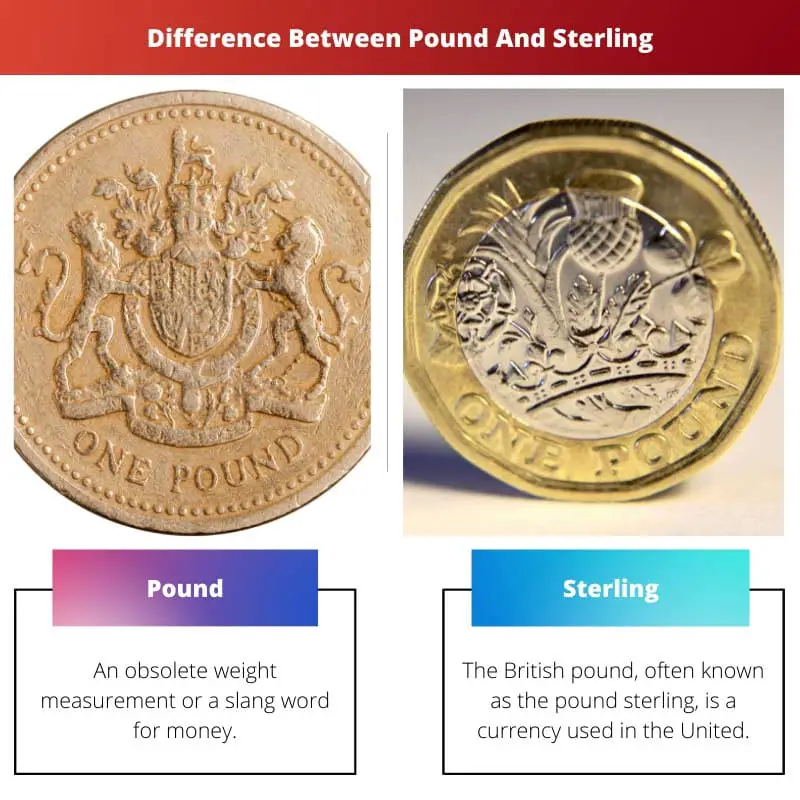Currency is traded all around the world. The currencies of various countries are distinct from one another.
The Pound Sterling, which is associated with the United Kingdom, is one example of a sort of money. The name “sterling” is occasionally used to refer to British currency.
The words pound and sterling are interchangeable in the United Kingdom, but is there a difference between these two names when it comes to monetary denominations?
Key Takeaways
- Pound and Sterling are used interchangeably to refer to the currency of the United Kingdom.
- A pound is the currency’s official name, while Sterling is a term that historically referred to the weight of silver in British currency.
- The pound and Sterling are both still widely used to refer to the currency of the United Kingdom.
Pound vs Sterling
A pound is a term used to describe a weight measurement of obsolete objects, and it is used as a short form or slang for a currency. Sterling is also known as the pound sterling, and it is the term used to identify the British currency. It is used for trading only in the accepted regions.

The pound is alternatively known as the pound mass. A pound is a unit used for measuring mass which was used by the British imperials.
The pound is a descendant of the Roman libra (hence the abbreviation “lb”). It’s a slang phrase for money or archaic weight measurement. It can also refer to the pound of Lebanon, Syria, or Egypt.
The Pound Sterling is known to be the official currency of the United Kingdom. Simultaneously, it is also the currency of many other places, for example, the Isle of Man, and the South Sandwich Islands.
The “pound sterling” is known to be the oldest currently used currency in the world. The pound is a currency used by several countries that do not use sterling.
Comparison Table
| Parameters of Comparison | Pound | Sterling |
|---|---|---|
| Definition | An obsolete weight measurement or a slang word for money. | The British pound, known as the pound sterling, is a currency used in the United Kingdom. |
| Usage | A pound is a versatile weight-measuring unit which is also used as a short form of currency. | The official term for British money is pound sterling, which is utilized for financial operations. |
| Derivation | The word pound comes from “libro pondo” from Latin. | The word Sterling comes from the word “steorra”. |
| Symbol. | For weight, use the pound symbol “£” or “lb.” | The ISO code “GBP” or the pound symbol “£” |
| Term | It is not the proper term for currency. | It is the proper term for currency. |
What is Pound?
A pound is a unit used for measuring mass which was used by the British imperials. In some places, it is also known as Pound-mass.
The libra is a descendant of the Roman libra hence the abbreviation “lb”. It’s a slang phrase for money or archaic weight measurement.
It can also refer to the pound of Lebanon, Syria, or Egypt. As the metric system was invented, the pound started getting recognized as directly 500gm, as per pound equals 500gm.
In some nations, a pound can refer to a variety of distinct monetary units. As a result of Charlemagne’s monetary reform, the word “pound” came from the Frankish Empire.
The word “pound” derives from the Latin word pondus, which means “weight”. The word was used to refer to the value of a pound of silver.
All these have derived from the Latin language. In Latin, the phrase Ibra pond means a pound by weight.

What is Sterling?
When “pound sterling” is abbreviated, the word “sterling” is reduced to ster. or stg. It is a financial phrase that refers to currency.
Since Sterling is the official term of the currency, the term is used in utmost importance in the money markets, whereas in speaking terms. It is not that much important.
After the US dollar, the euro, and the Japanese yen. The Sterling is a very well-known and one of the oldest currencies of the world that is still used in the present day.
In the world market, the Sterling has a pretty high value and is in the top tier of currencies traded worldwide. Today, the word Sterling can belong to English names.
A range of currencies (mostly the Uk and associated) and historical currencies. A few of these, such as those in nations that were once part of the Roman Empire, is referred to as the pound in England.
The pound sterling is a Uk currency that is equivalent to the noun pound. It’s a term that comes up a lot in financial dealings.
It’s more customary to use it to refer to money than it is to express real financial moves.

Main Differences between Pound and Sterling
- The pound is An obsolete weight measurement or slang word for money, whereas the British pound, known as the pound sterling, is a currency used in the United.
- A pound is a versatile weight-measuring unit which is also used as a short form of currency, whereas the official term for British money is pound sterling, and it is the one utilized for financial operations.
- In Pound for weight, use the pound symbol “£” or “lb”, the ISO code “GBP” or the pound sterling symbol “£”.
- The pound is a term used as a synonym of currency due to its frequent usage in speaking language, whereas Sterling is the proper term for the currency.
- The word pound comes from the Latin word “Libro pondo”, whereas the word Sterling comes from the word “steorra”.




